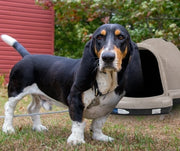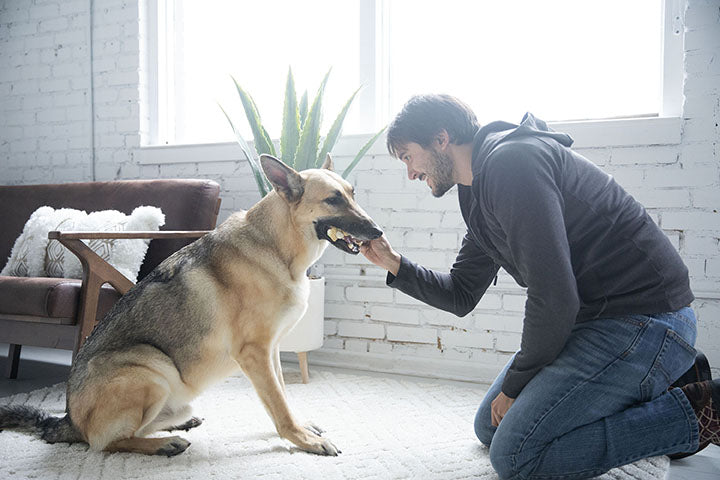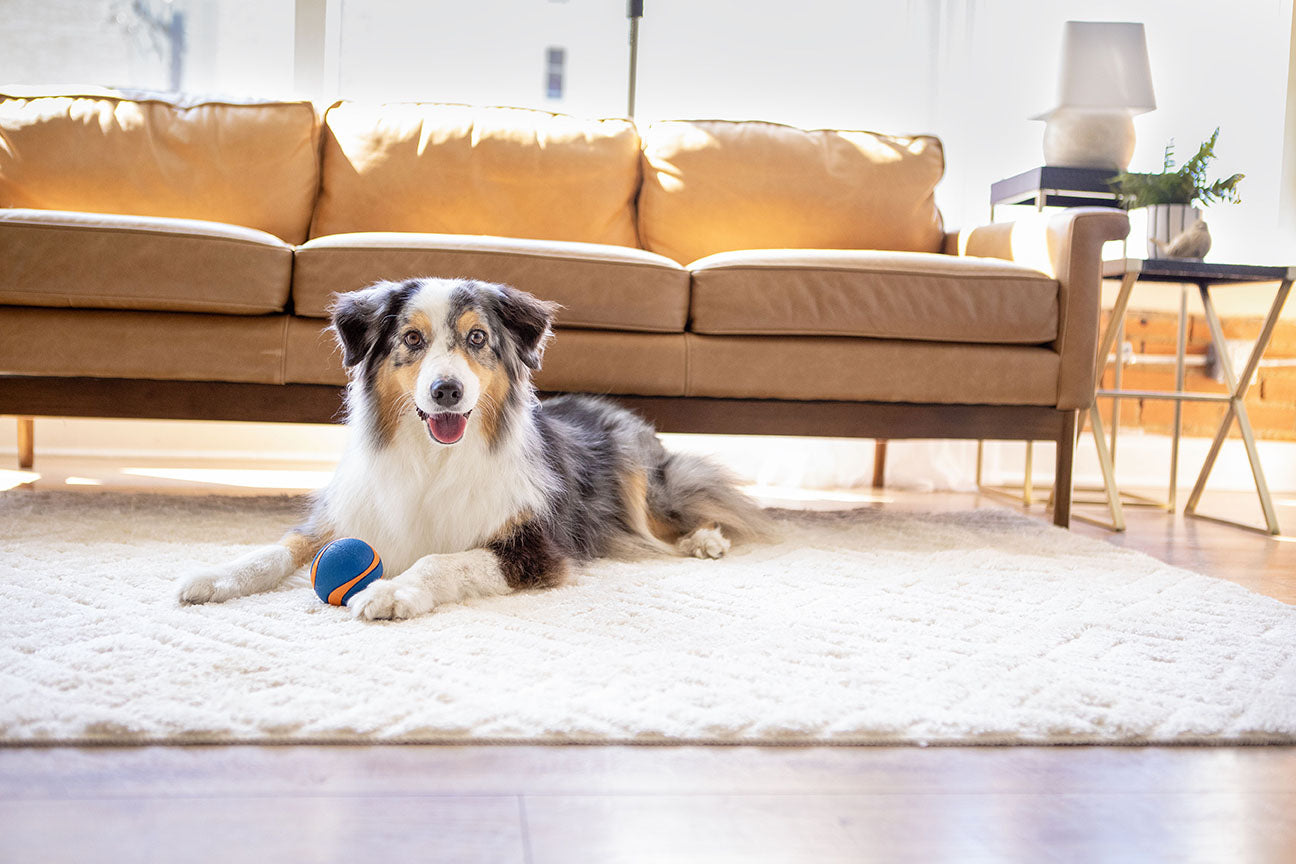You and Your Dog are More Alike than You Think - Science Explains Why

We’ve all heard the adage – a dog is a man’s best friend. A best friend is someone who loves you unconditionally, understands and adores your idiosyncrasies, and complements your uniquely awesome personality.
Are you the strong-willed, committed owner of a bulldog? Or perhaps you are a carefree, spontaneous owner of a pit bull? From beagles to terriers, science explains why pet parents and their beloved furry friends look alike and act alike, too. As you guessed it – you and your dog are more alike than you think.
The breed of dog you prefer can reveal a lot about you.
Jack & Jill – the Perfect Pair
Imagine Jill Russell, an energetic young lady, wearing a vivid ensemble as she walks her Jack Russell Terrier, wearing a corresponding leash and collar. This on-trend, dynamic pair seems to be in sync with one another, from matching ensemble, eye color, hairstyle to personality and body movement. As Jill and her approachable dog enjoy a stroll to the city’s most popular coffee shop, she runs into an old friend along the way. After exchanging pleasantries, Jill’s friend remarks on how much her furry friend resembles her style, spirit, and personality.
Not so Strange After all
Superficial traits, such as hairstyle and eye color as well as more significant personality traits, including agreeability and responsiveness, are often shared by both pet and pet parent. Take Jack and Jill, for example, the dynamic pet parent and pet duo en route to the coffee shop. This peculiar resemblance of Jill to her dog was obvious to Jill’s friend. Is it simply a coincidence that Jill looks and acts like her beloved pet? Well, according to research this strange phenomenon actually isn’t so strange after all. There are scientific explanations for why people might have a preference for dogs that look something like themselves. The data is quite clear that at least when dealing with people, we certainly prefer those who are similar to us.1 We desire to live in harmony with others, especially with those who share common interests, personalities and physical appearance with us. So simply put, if you are a sweet, friendly individual, chances are you will also choose a dog with the same temperament.
So the science suggests that this bit of folk wisdom is correct. People do, indeed, tend to select dogs that look like themselves. However, this is not a universal principal.1
Research Findings
Dr. Stanley Coren, professor of psychology at the University of British Columbia and author of numerous books on dog behavior, conducted a study of 104 female students at the University of British Columbia, to test women’s preferences to dogs’ temperament and physical traits with regards to familiarity. After showing the students portraits of four different breeds with varying hair lengths, including short and long hair, the students were asked to rate the dogs in varying categories, such as how intelligent and attractive they perceived the dogs to be. In general, women with longer hair covering their ears tended to prefer the Springer Spaniel and the Beagle, rating these breeds higher on the dimensions of likeable, friendly, loyal and intelligent. Women with shorter hair and visible ears tended to rate the Siberian Husky and the Basenji more highly on these same dimensions.1
Additional research was conducted by Michael Roy and Nicholas Christenfeld, psychologists from the University of California at San Diego, to explore techniques on how people select their dogs. With Coren’s research model focused chiefly on hairstyle variations, Roy and Christenfeld decided to extend the resemblance research further. The two psychologists photographed 45 dogs and their owners, separately. The psychologists then showed photos of the owners to 28 volunteers who had to guess which was most likely that owner’s dog from a pair of pictures containing the owned dog and another.1 A majority of the volunteers accurately paired the dogs with their owners in about two thirds of the cases, suggesting that dogs and owners do resemble each other.1
Your Best Friend Forever – Adopt a Shelter Dog
While further scientific research is needed to yield more conclusive findings on this topic, science suggests that we seek familiarity on a subconscious level and are inclined to choose pets that resemble us to some degree.
Regardless of the type of breed you choose, know that when you adopt a shelter dog, you are transforming not only your life but the life of a dog that will love you unconditionally – bad hair days and all. When animals and humans connect, good things happen – it’s that simple. Humans feel a general sense of support from animals as well and have been perceived to be happier and healthier in the presence of animals.2
Sources:
Previous article

Related posts
View all-

National Dog Week: 7 Fun Ways to Celebrate with Your Pup
The last full week of September marks National Dog Week: a tradition going strong since 1928. Founded by Captain William Lewis Judy, this celebration was created to promote responsible dog ownership, reduce the number of stray dogs, and honor the incredible role dogs play in our lives.
Read Article -

How to Prep Your Pet for Fall: Grooming and Wellness Tips
As the days grow shorter and the crisp air settles in, our routines naturally shift; long walks become brisk outings, and cozy nights become the norm. Like us, pets feel these changes. Helping them ease into the new season ensures they stay happy, comfortable, and healthy.
Read Article -

Vet-Approved Benefits of Fetch: How Play Supports Your Dog’s Health & Happiness
Whether it’s a spontaneous backyard sprint or a structured game of fetch, movement is one of the most powerful ways to nurture the bond between pets and their people.
Read Article




